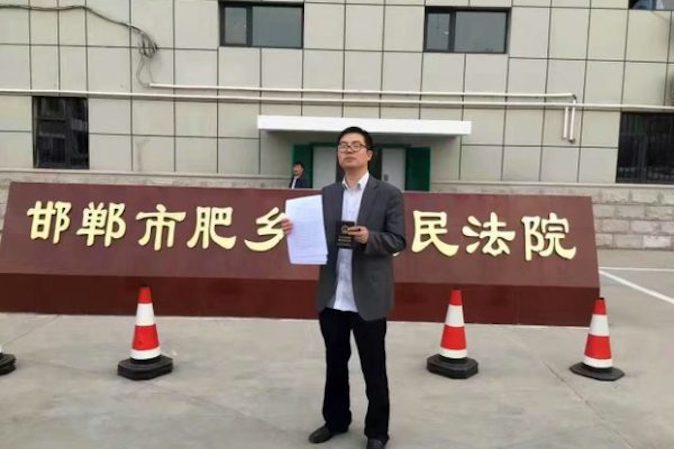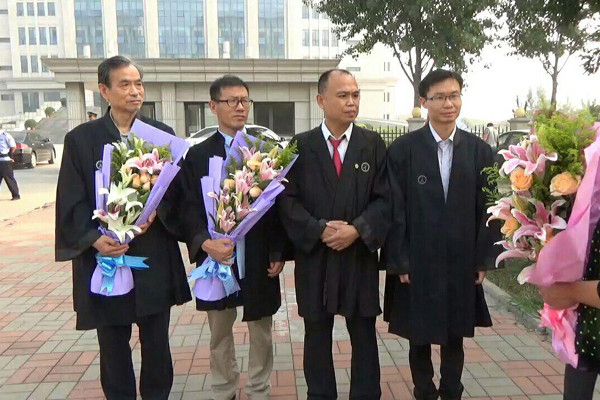
Legal Representation Precarious for Falun Gong in China
In a vast country of 1.3 billion people without true rule of law, the availability of fair legal representation varies wildly from region to region, court to court. In most cases, the situation depends largely on the personal attitudes of the presiding judge.

Last month, a unique case was reported in which four lawyers in Tianjin were allowed to defend Falun Gong practitioners, not only pleading “not guilty,” but citing Falun Gong’s principles of truthfulness, compassion, and tolerance as universal values. It was the first time such an act took place in a Chinese court.
The case signifies a relaxing of attitudes toward Falun Gong in China—at least in some courts. On the other hand, a human rights lawyer in Feixiang, Hebei, was this month illegally frisked and barred from the courtroom where he was to defend a Falun Gong practitioner.
“Judge Liu told Dong that he couldn’t bring any bags—a briefcase and three small bags with material and documents he prepared for the case—into the courthouse, and personally escorted Dong to an adjoining building to inspect his belongings,” reports the Epoch Times. “Despite finding nothing of note, Judge Liu still forbade Dong from entering the courthouse.”
Physical assault, verbal threats, and extrajudicial actions taken by members of the legal system against lawyers continue to be routine occurrences in Chinese courthouses, making for a precarious situation for Falun Gong practitioners and other persons of faith seeking legal representation in China.
Source
-
Chinese Human Rights Lawyers Defend Teachings, Practitioners of Falun Gong in Court
(http://www.theepochtimes.com/n3/2156752-chinese-human-rights-lawyers-defend-teachings-practitioners-of-falun-gong-in-court/) -
Lawyer Frisked, Assaulted, Barred From Defending Falun Gong Practitioners in China
(http://www.theepochtimes.com/n3/2172033-lawyer-frisked-assaulted-barred-from-defending-falun-gong-practitioners-in-china/)
